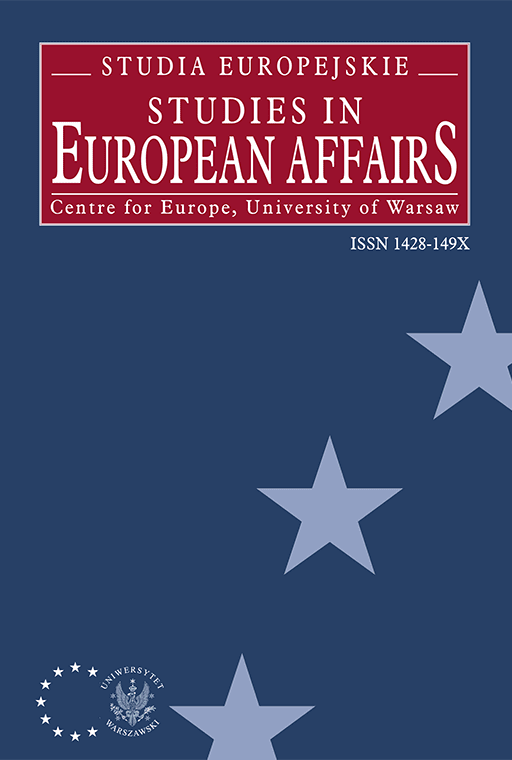
ISSUE: 2/2012
- Volume 62
- Number 2
- 2012
Subscribe NEWSLETTER
Studia Europejskie –
Studies in European Affairs
ISSN: 1428-149X
e-ISSN: 2719-3780
License
Articles published in the journal are under a Creative Commons Attribution – Non Commercial – No Derivatives 4.0 International License
Historyczne procesy identyfikacji narodowej i wyznaniowej dawnej Rzeczpospolitej
Historical Processes of National and Religious Identification of the Former Commonwealth of Two Nations
Abstract
The formation of nations is the outcome of complicated processes, of which the most important are historical processes. The ethnic definition of a nation includes traditions, customs, folk culture and religious beliefs as a part of cultural community. The symbolic beginning of the modern Polish nation was the year 1569. At that time, noblemen were the nation. The analysis of the process of nation forming in the territory of the Commonwealth concerns the genesis of Poles, Lithuanians, Latvians, Estonians, Belarusians and Ukrainians, and also, to some extent, Russians. The national identity of the Polish-Lithuanian state was defined by its federal system, the nobility democracy and elective monarchy, its multicultural, multireligious and multiethic nature. The Commonwealth of the XVI and XVII centuries was the phenomenon of antemurale – ‘the rampart of Christianity’. The idea of bringing about a rapprochement between the nations of the former Commonwealth was approved by Pope John Paul II who supported European integration. The Pope believed that in the process of European integration one should not draw solely from the experience of Western countries but one should also appreciate the cultural heritage of the Middle and Eastern European nations together with the former Commonwealth of Two Nations.
Language: Polish
Pages: 113-140
How to Cite:
Harvard
Przeździecki, M. (2012) "Historyczne procesy identyfikacji narodowej i wyznaniowej dawnej Rzeczpospolitej". Studia Europejskie – Studies in European Affairs, 2/2012, pp. 113-140.